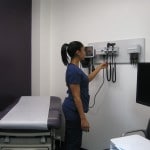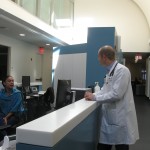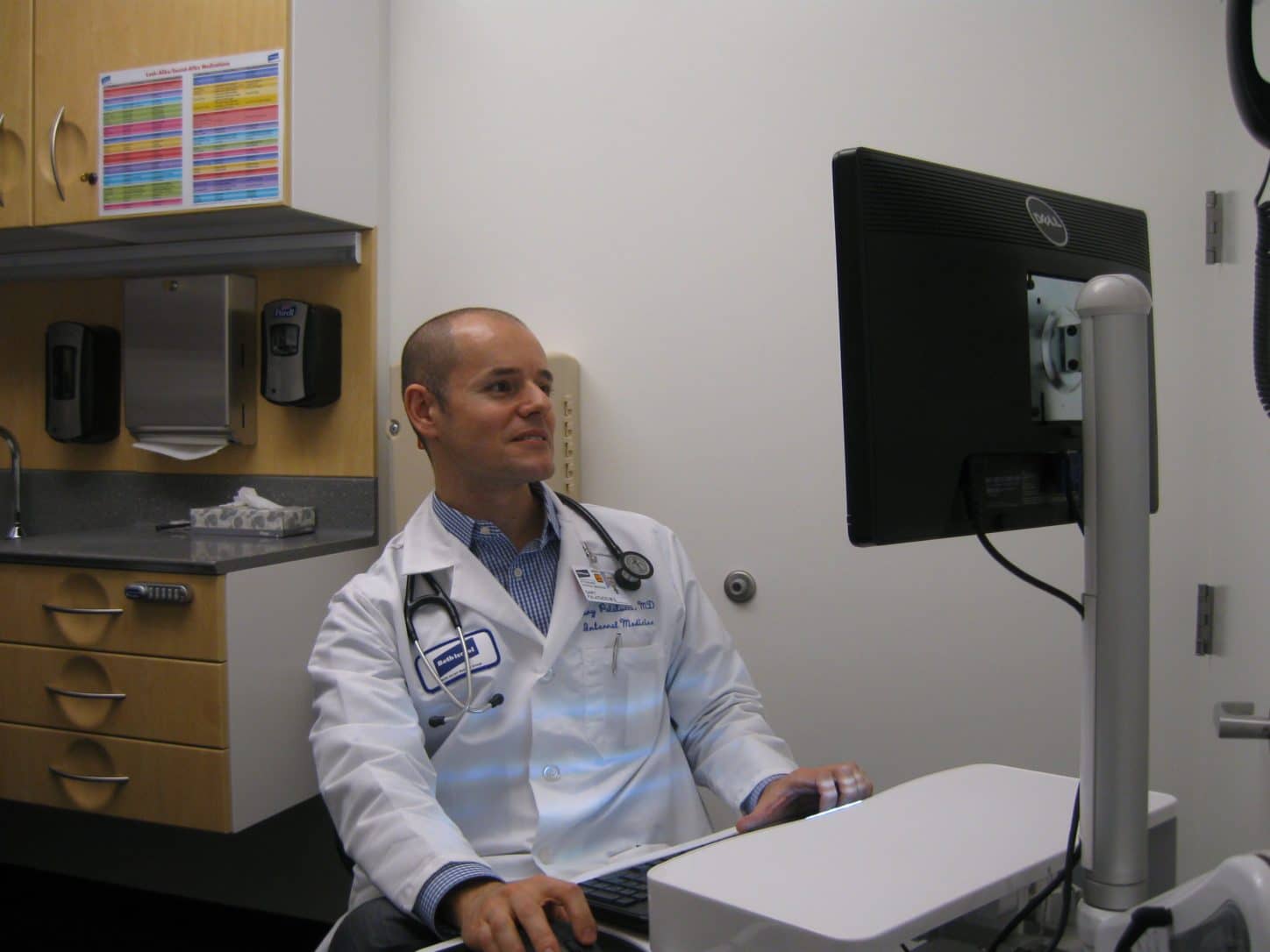by Barbara Nevins Taylor
I think I found the internist of my dreams. He interviewed me. He talked, reviewed my medical history and actually examined me.
It was kind of like visiting Dr. Friedlander, the general practioner in Laurelton, the community in Queens, New York, where I grew up, or visiting my uncle Dr. Murray Robin’s office in Lindenhurst, Long Island.

This doctor, 39-year-old Gary Palatucci just opened a street level practice on 8th Street in Greenwich Village as part of the Beth Israel Medical Group in New York City. I saw the office, looked him up and decided to try him for a routine checkup.
I hadn’t seen an internist in years primarily because I don’t have a lot of medical problems. I’m tempting fate here. My family is superstitious and as soon as this pops up online, it qualifies as kinahora. That’s the way we use a Yiddish word to describe bringing a curse or the evil eye upon yourself.
 But back to Dr. Palatucci. He seemed to embrace a kind of old-fashioned common sense medicine. “Is there a particular reason that you are here?” he asked. I explained that I have no big complaints, but thought it was time to establish a relationship with an internist.
But back to Dr. Palatucci. He seemed to embrace a kind of old-fashioned common sense medicine. “Is there a particular reason that you are here?” he asked. I explained that I have no big complaints, but thought it was time to establish a relationship with an internist.
He didn’t rush me off to get a complete blood screening or suggest a battery of expensive tests. He was completely unfazed after I gave him my previous blood tests to review.
I explained that I’ve had high cholesterol for years, and am part a tribe of long-lived Ashkenazi Jews whose genetic marker is the high level and large size of “good” cholesterol.

I know this because I’m in the second wave of subjects in the Longenity Study at Albert Einstein Medical Center run by Dr. Nir Barzilai. He’s been studying Ashkenzi Jews, like my family members who live to 95 and older, to find out if there’s something about us that can promote good health in others.
Nevertheless, every doctor I’ve met previously was eager to keep testing and to sign me up for cholesterol reducing medication, which I always declined.

Dr. Palatucci said, “You know right now there’s a controversy in medical circles about cholesterol testing and risk factors. If you are a healthy, active non-smoker without a family history of heart disease and you have high cholesterol, the risk is different for you than it may be for an inactive person whose family does have a history of heart disease.”
I liked him because he said, “I’m not a proponent of testing for testing’s sake. I tell my medical students at Albert Einstein Medical College that tests are only good if you know what you are looking for.”
His advice to me and other patients is practical: “If you ride a bike, a motorcycle or ski, wear a helmet. Don’t smoke. Don’t eat too much, don’t drink too much.” Uncle Murray and Dr. Friedlander would have said the same thing.
It’s the kind of advice and practice of medicine that can help us stay healthy and reduce what we pay out for routine medical care.
“Healthcare costs in this country are just too high and excess testing is one of the contributing factors,” Dr. Palatucci said.

It’s refreshing to meet a doctor who likes practicing medicine and doesn’t view patients as marching dollar signs. He’s not a cut-rate physician, but he doesn’t ask you to sign up and pay for an annual plan. He doesn’t suggest you buy vitamins online, reminding you to mention on the site that he’s your doctor.
Instead, he makes a point of explaining on his web profile that he’s not in business with pharmaceutical companies. It’s like a breath of fresh air.
I hope that I don’t have to visit the doctor again soon. But I admire and support his approach to treating patients as individuals and to helping us all by keeping an eye on the money issue.
Oh. And did I mention that he accepts insurance and Medicare.
![]() Time to Change Your Medicare Part D Plan?
Time to Change Your Medicare Part D Plan?
![]() Holiday Season And How Are Your Aging Parents?
Holiday Season And How Are Your Aging Parents?



